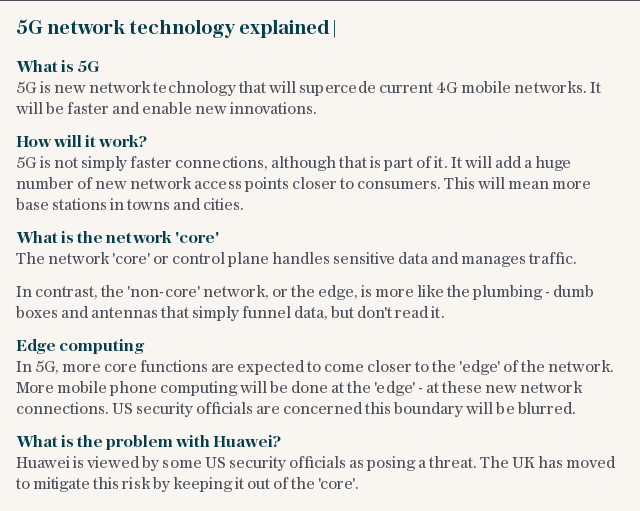Why the 'father of the internet' is worried about 5G

Vint Cerf, the “father of the internet”, fears 5G networks will erode consumer privacy because they are designed to give telecommunication providers much more control over how we use the world wide web.
Mr Cerf, 77, who co-founded the technical standards that underpin the internet as a student in the 1970s, said that the new generation of broadband raised privacy issues for consumers.
“The 5G design actually exposes a whole lot of consumer activity that wouldn’t otherwise be visible,” he said.
The upcoming networks not only use a higher frequency radio, but use a completely different technical architecture that lets telecommunication see how their services are being used.
Parties who use the 5G equipment to sell internet services “are trying to pull control of the internet away from where it has been since we designed it”.

Cerf and his colleague designed the internet so that the "plumbing" provided by companies like BT, for example, sat underneath "over the top" services which are accessed through the world wide web, like Google or Netflix.
“Keep in mind that the telecommunication companies have been envious of what they call ‘over the top’ services which generate revenue in a way they cannot and get information about the behaviour of users, and can run advertising operations,” he said.
This switch in design, which Cerf described as telecommunications providers running different pipes, as oppose to just one, could allow them to charge differently for certain services. This could impact companies like Google, which use up a lot of bandwidth.
The company has been lobbying to stop this from happening, and promoting “net neutrality”, or what the UK more commonly refers to as an open internet, for several years. Civil rights activists and consumer groups warned that this might mean customers are charged more for popular services.
In the US, net neutrality rules were introduced in 2015 to stop this partitioning of the internet, which were repealed in 2018.

 Yahoo Finance
Yahoo Finance 